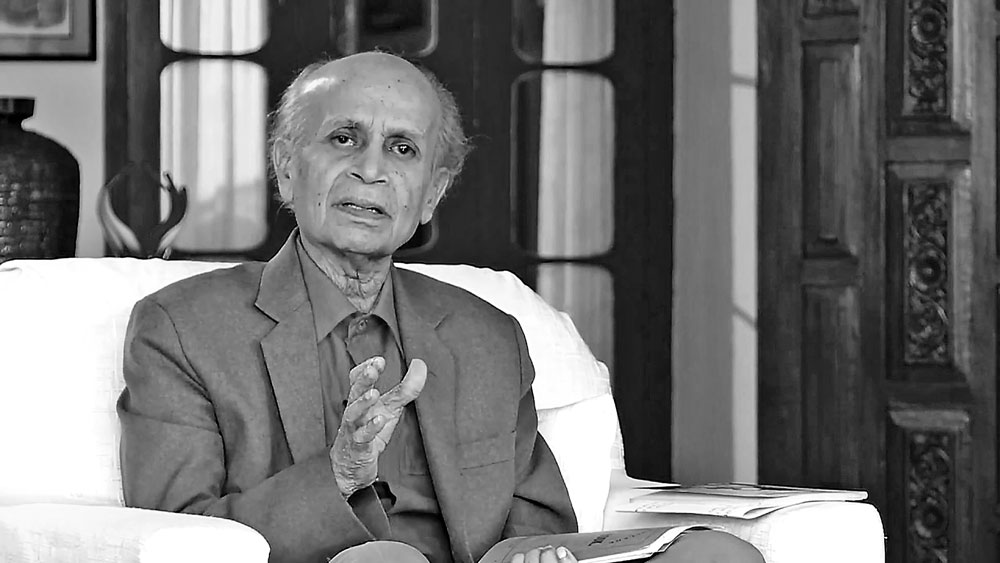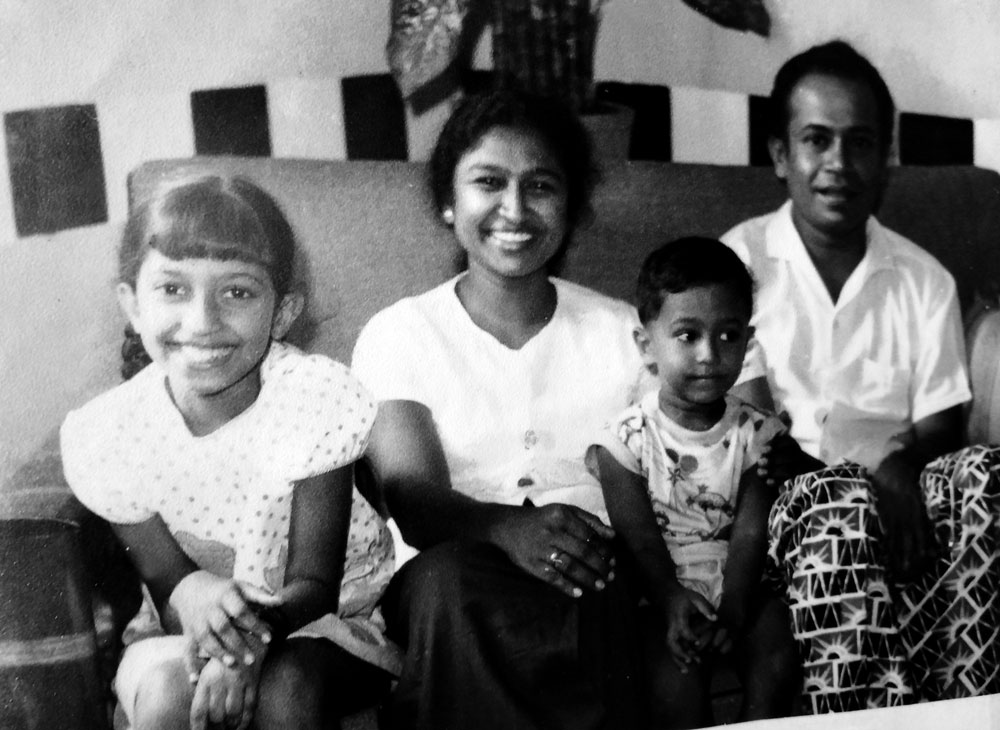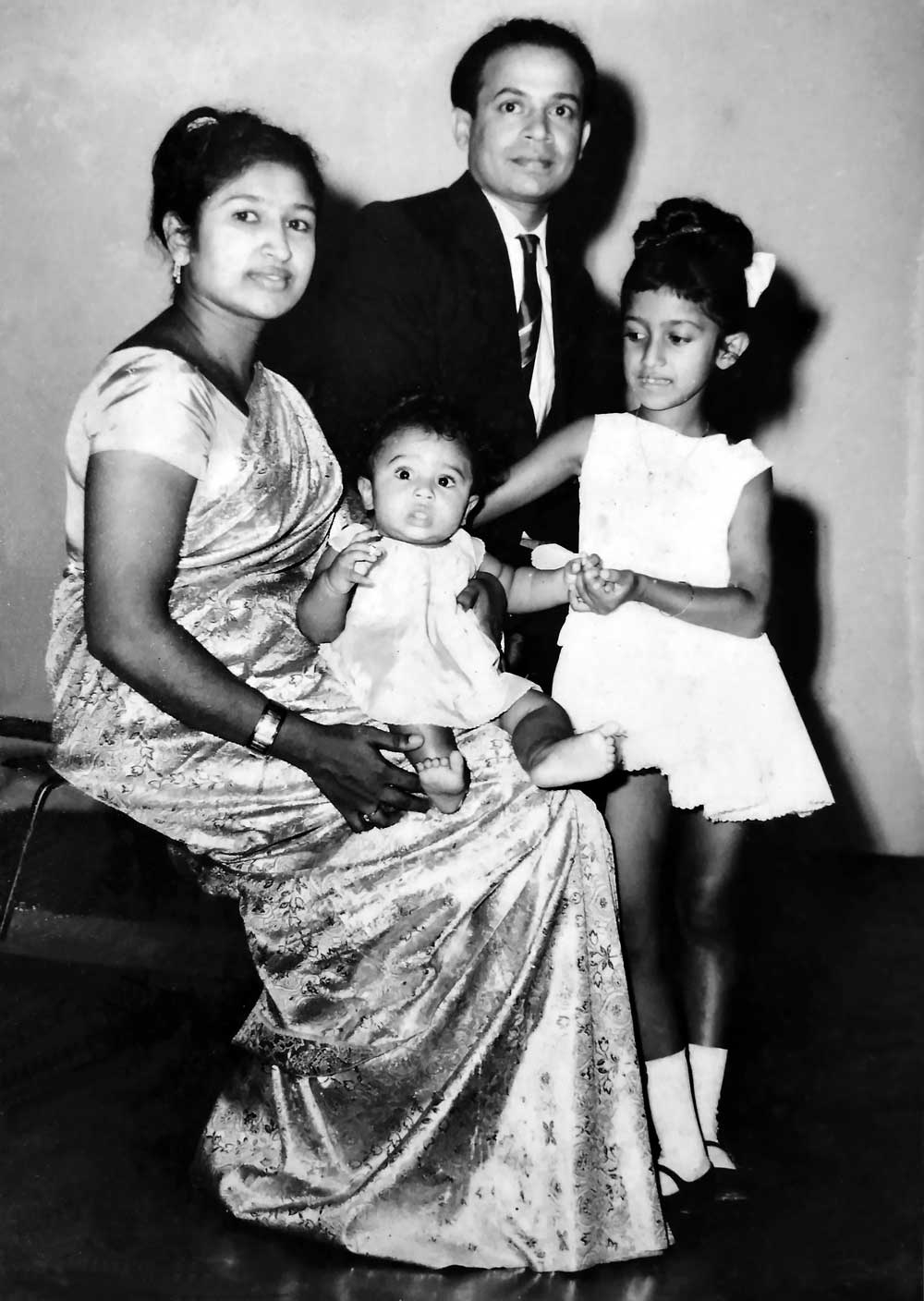
Compiled by Tina Edward Gunawardhana
|
Demolishing the myths behind fire walking, Prof. Carlo Fonseka was filmed by a British TV crew in the presence of British Science Fiction writer Arthur C Clark |
One of Sri lanka’ s most respected medical personalities Professor Carlo Fonseka’ s contribution to medicine in Sri Lanka will be remembered for decades to come
The name of Professor Carlo Fonseka is synonymous with the field of medicine in Sri Lanka. Born in 1933 to a Roman Catholic family, Fonseka was educated at Maris Stella College Negombo and St. Joseph’s College Colombo. After an illustrious career in school he joined the University of Ceylon’s Faculty of Medicine in Colombo in 1955 and graduated in 1960 with a first class MBBS degree.
Soon after Fonseka joined the Colombo General Hospital as an intern where he worked under professor K Rajasuria and senior surgeon Dr Noel Bartholomeusz. Subsequent to this, Fonseka joined the Mirigama base hospital as a medical officer. Working his way up the career ladder in 1962 Fonseka joined the University of Ceylon’s Department of Physiology as a lecturer. He then joined the University of Edinburgh’s Department of Physiology in 1964 to pursue his Doctoral studies obtaining a Ph.D in 1966. His Doctoral work on how the pituitary gland puts out Growth Hormones has become the stuff of textbooks. Armed with his Ph.D Fonseka in 1967 returned to
Sri Lanka, where he commenced work at the University of Ceylon’s Department of Physiology where he worked as its professor from 1982 to 1989. During this time the country saw the emergence of the North Colombo Medical College (NCMC) which was a private medical school. The North Colombo Medical College was nationalized in 1989 and in 1991 when it became the University of Kelaniya’s Faculty of Medicine, Prof Carlo Fonseka was appointed as its very first Dean, a position he held until 1997. In 1999 Professor Fonseka was awarded a M.A degree from the University of Kelaniya and was also a Fellow of the Ceylon College of Physicians and the Sri Lankan College of General Practitioners.
A man of great knowledge and wisdom, Professor Carlo Fonseka will be remembered as someone who contributed immensely to the field of medicine
His appointments were many, and these included holding the position of Chairman of the Board of Management of the University of Colombo’s Postgraduate Institute of Medicine from 1996 to 2001. He was also appointed as an Emeritus Professor in 2000 at the University of Colombo and University of Kelaniya. In 2012 Professor Fonseka was appointed as the President of the Sri Lankan Medical Council which he resigned from in 2017.
He had also served as President of the Arts Council of Sri Lanka and was Chairman of the Vijaya Kumaratunga Memorial Hospital. He also functioned as a member of the University Grants Commission.
Professor Fonseka was also a very vocal critic of private medical education and campaigned against the North Colombo Medical College in the early 1980s. A man of conviction Professor Fonseka while he was President of the Sri Lanka Medical Council was highly critical of the South Asian Institute of Technology and Medicine (SAITM) a private medical school.
For those in the sphere of medicine, his colleagues and students, Professor Carlo Foneska is revered and held in such high esteem that some liken him to a deity
Professor Fonseka also served as the Chairman of the National Authority on Tobacco and Alcohol. Much of his work revolved around campaigning against the use of these substances and he was one of the six South-East Asia Region
|
Prof. Carlo delivering the eulogy for Vijaya Kumaratunga |
awardees of the World No Tobacco Day 2012 awards. Professor Ratnajeevan Hoole, a contemporary of Professor Fonseka’s at the UGC paid a glowing tribute on his demise in 2019. Speaking of Professor Fonseka’s far reaching interests, Professor Hoole says “Carlo I am sure saw this deterioration of the university ethos early and left behind his high powered research in physiology to work on more important things like superstitions, politics and religion. By far his most successful endeavor is his world-famous demolition of the myths behind fire-walking”. Citing a passage from his book, Professor Hoole adds “Carlo Fonseka became most famous for his scientific elucidation and personal demonstration of how fire-walking is done by Buddhist and Hindu devotees who walk across embers without burning themselves. To demonstrate this he starred in a documentary filmed by a British TV crew in the presence of British Science Fiction writer Arthur C Clark where he fire-walked, an area where others feared to tread and came a cropper by fire walking to show it can be done by anyone and in the process burnt their soles badly. Carlo came out with the rules of how it is done – walking fast without allowing the soles to heat enough to reach ignition point to burn the flesh, and making the rectangular fire bed wide to make it seem big while the length one walks across is narrow, thereby giving the impression of walking across a large bed of embers, etc. He showed that the thick soles of the fire walkers who never use footwear also helped.”
Professor Fonseka had a healthy interest in politics possibly fuelled by his close relationship with Vijaya Kumaratunga, his nephew. He was a prominent member of the Trotskyist Lanka Sama Samaja Party (LSSP) and was a member of the party’s central committee and politburo. As a member of the Trotskyite Lanka Sama Samaja Party (LSSP), Carlo and his LSSP friends under the late N.M. Perera, did Tamils proud by standing up for Tamil rights and parity of status for Tamils with the Sinhalese. However, as the LSSP realised that this policy was not winning them votes, they abandoned their noble ideals.

As the political culture in Sri Lanka deteriorated, Professor Fonseka withdrew into religion and music. He completed an MA degree in Buddhism. Initiated into Sinhalese music at St. Joseph’s College he made a name for himself as a popular musician and one of his Sinhalese lyrics “Raththaran Duwe” is now sung at weddings as the bride goes away and others are used in award winning movies.
A man of great principles who did not chase after wealth, much has been said and written by his colleagues and students after his death. For those in the sphere of medicine, his colleagues and especially his students, Professor Carlo Foneska is revered and held in such high esteem that some liken him to a deity. Eloquent, educated and principled, Professor Carlo Fonseka’s death is a great loss to the medical fraternity in Sri Lanka.

Prof. Carlo with his family
